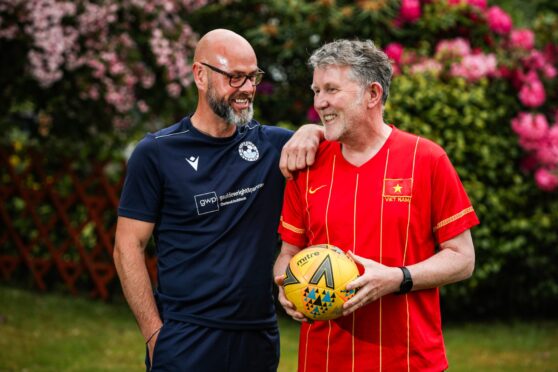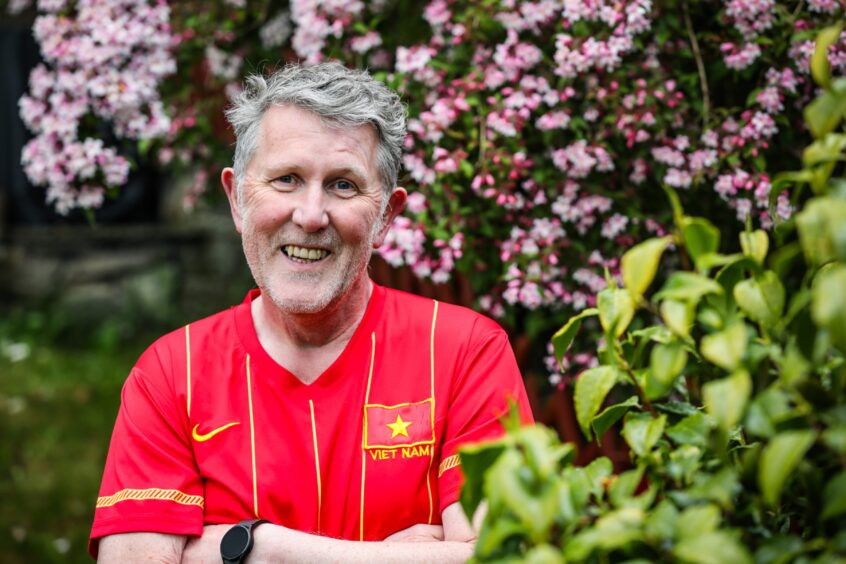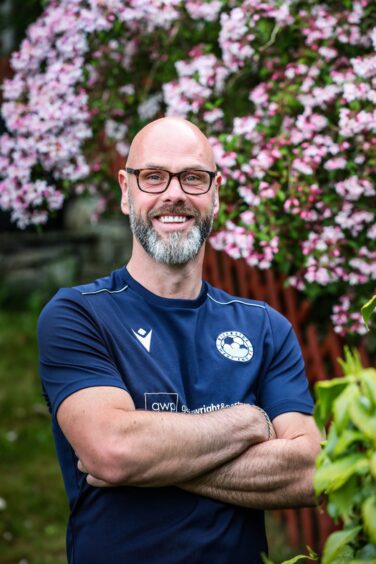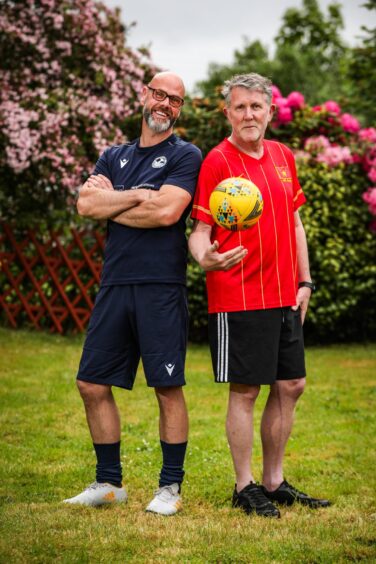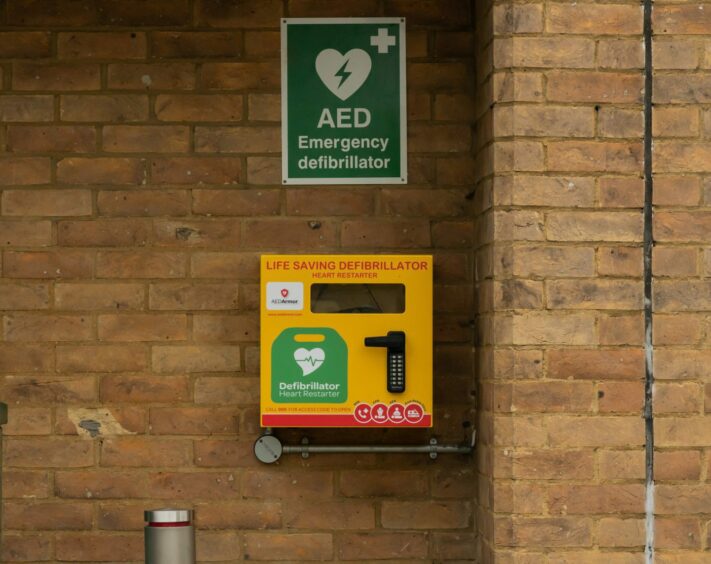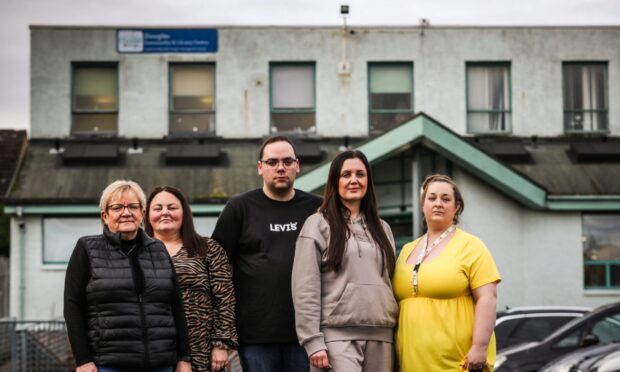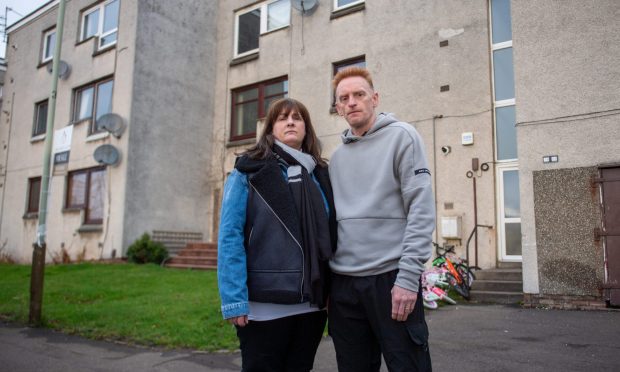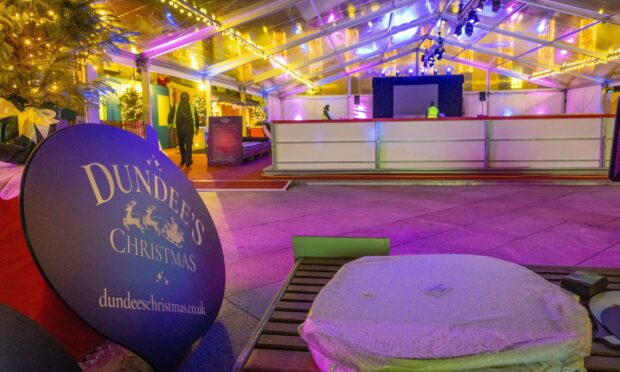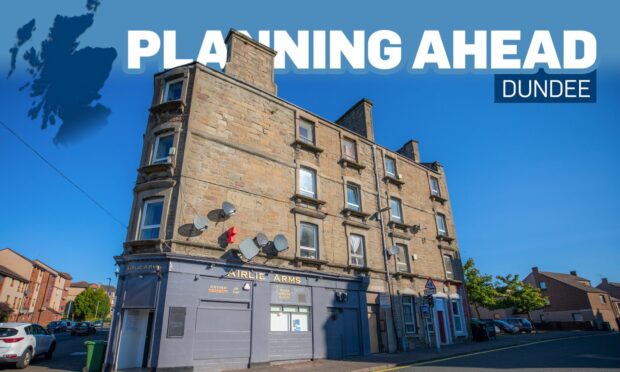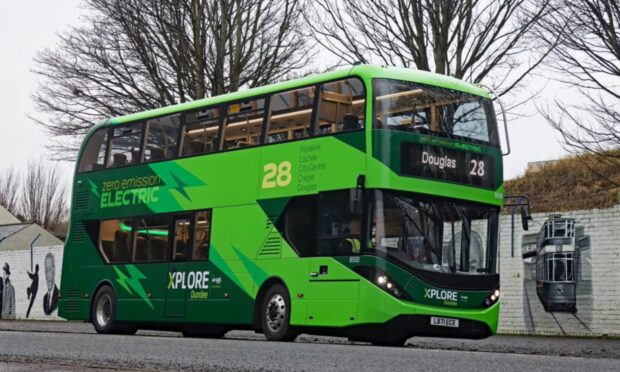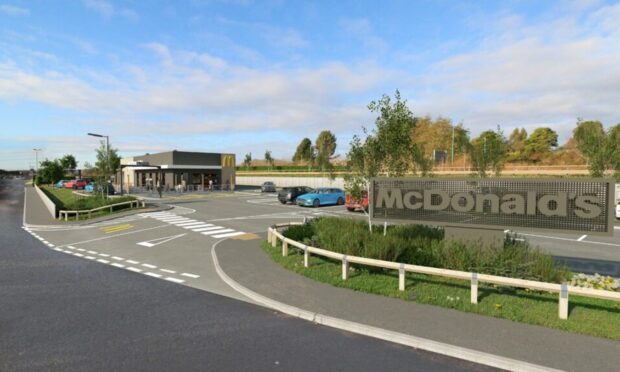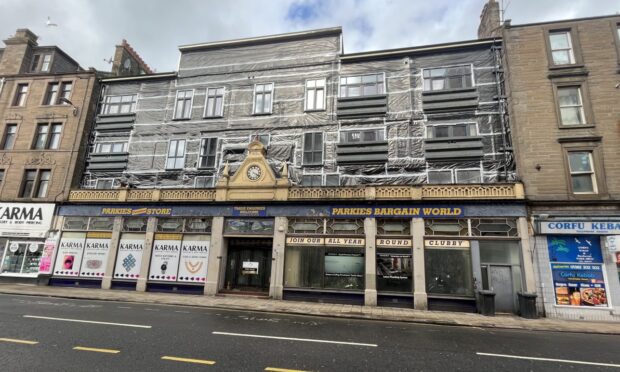A Dundee dad of two revealed how he was brought back to life with the aid of a defibrillator after he collapsed from a cardiac arrest during a game of five-a-side football.
Chris Wright 61, who has played football all his life and umpires at hockey matches, went down “like a sack of tatties” during his weekly football with friends at his local council sports centre.
Teammate Steven Mackie is a trained first aider and, with the help of CPR and a nearby cardiac defibrillator, shocked him back to life on the second try.
Last week the pair were back playing their weekly five-a-sides and feeling lucky to be alive.
‘I dropped down lifeless, without warning’
Chris is one of only 10% who survive out-of-hospital cardiac arrests.
“I knew nothing about the cardiac arrest and dropped down lifeless, without warning,” said Chris, who works with the Care Inspectorate.
“Two days later I woke up in hospital after having undergone a triple heart bypass to repair blocked arteries.
“There were no memories of anything, no lights or darkness, just out while others were saving my life.
“I am sure that it was only having a defibrillator nearby and Steven being trained to use it that I am alive today.
“Every day is a reminder of how lucky I am to be here.”
Handyman Steven, 43, revealed how he learned CPR.
“I coach with my boys’ team Riverside West End in Dundee, where part of my training was resuscitation,” he told The Sunday Post.
“You wonder at the time if you will ever have to shock someone back to life, but it can happen anywhere, with little or no warning.
“When Chris collapsed, he was still breathing so I put him in the recovery position. He stopped breathing and the centre manager ran for the defibrillator.
“The first shock failed to bring him back and so, while the defibrillator was recharging, I carried out the chest compressions of CPR. That got his blood circulating around his body until the defib’s prompt to shock him again.
“This time it worked, and the ambulance crew arrived seconds later to take over.”
Chris was taken to nearby Ninewells Hospital where doctors tried to open his arteries, but they were too blocked to navigate, and he was blue-lighted to Edinburgh Royal Infirmary for bypass surgery.
He recalled: “I woke up with my last memories of waving cheerio to my wife Alison, before heading off to play five-a-sides. Perhaps that’s just as well, bearing in mind what I went through.”
Alison, an Advanced Nurse Practitioner in the Neonatal baby unit at Ninewells, said: “We cannot thank Steven enough with appreciation, also to the Scottish Ambulance Service, the Ninewells and Edinburgh Royal Infirmary teams. They all worked tirelessly to save Chris.
“He is back playing football with his doctors’ blessings.”
Defibrillator access
The couple’s daughter, Heather, has passed on the torch to help other cardiac arrest patients by raising £4,500 for St John Scotland charity, which supplies defibrillators and trains people to use them.
“Every saved life is success story in our book,” said St Johns Scotland.
The charity provides CPR training, increases public access to defibrillators and other vital health community care.
Every year, more than 3,000 people in Scotland experience an out-of-hospital cardiac arrest when their heart stops pumping blood and oxygen around the body, said the Resuscitation Council UK.
Experts say less than 10% survive, with those living in poorer areas, but not exclusively, at more risk. And arrests can happen anywhere at any time.
